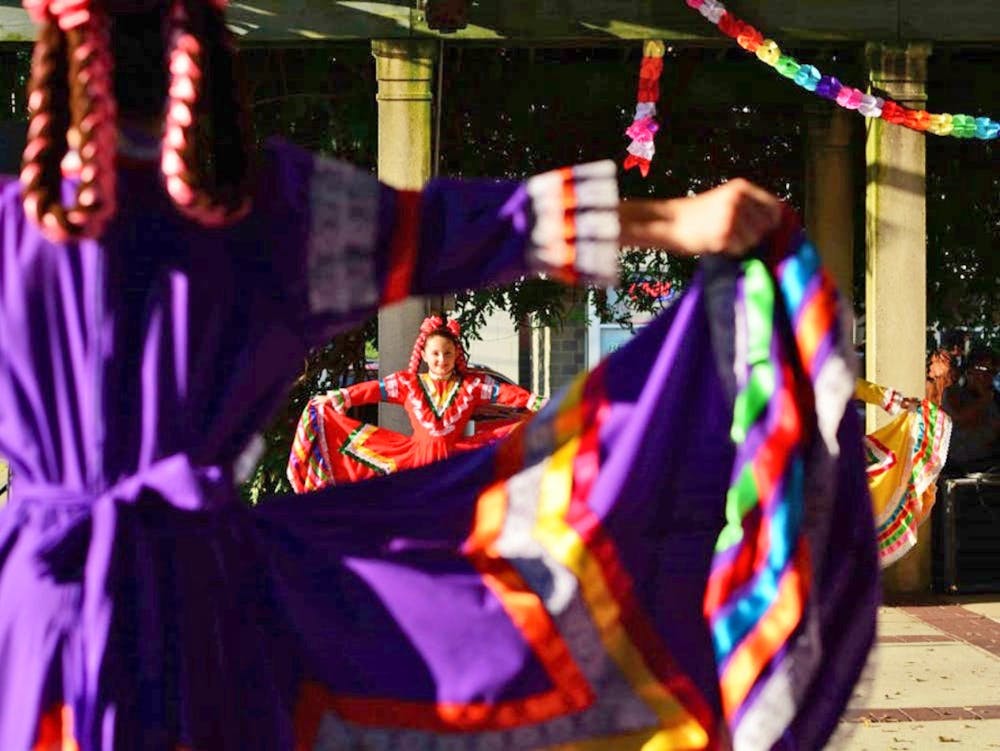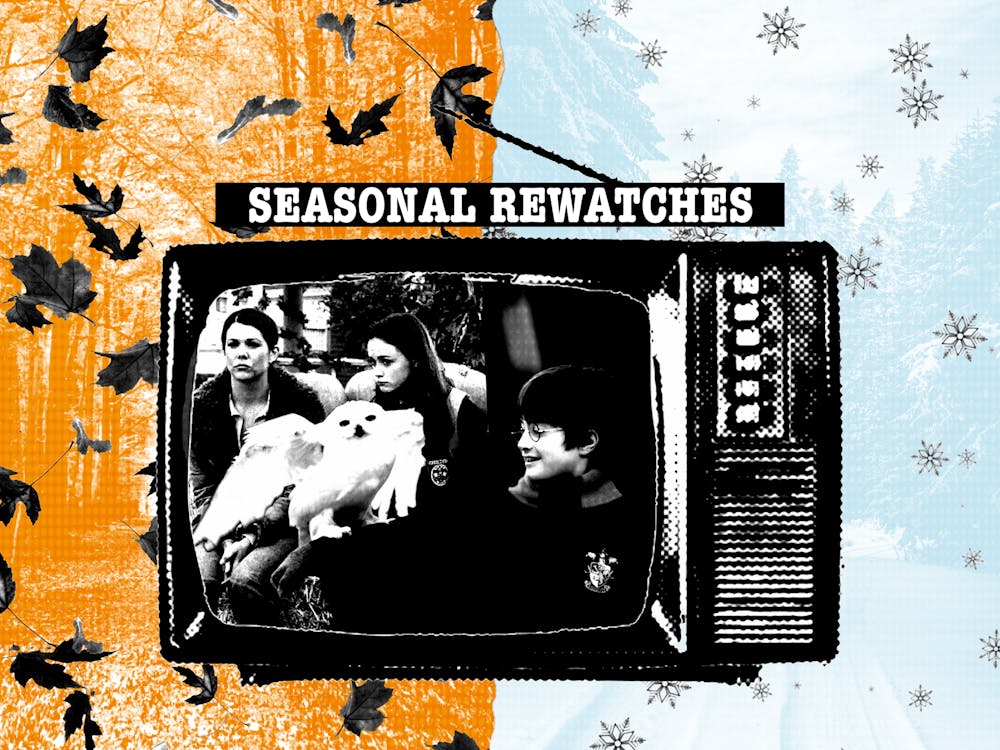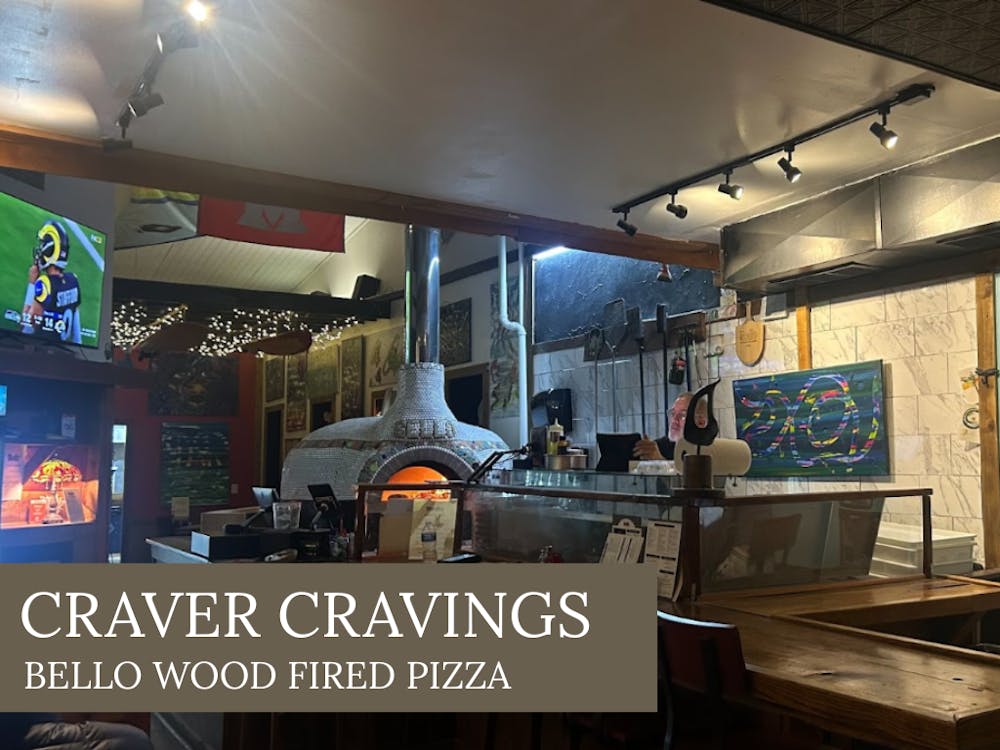On Sept. 30, Victoria Negrón, a senior psychology major, invited Marianna Gay, a junior speech pathology major, into her apartment kitchen. The pair went to work preparing to cook tostones, a twice-fried plantain dish common in Puerto Rico. Satisfied with the setup, Negrón sent out a Zoom link to UNIDOS, Miami University’s Hispanic and Latinx organization.
Even though the event was entirely virtual, it ran much like any other dinner with UNIDOS. Negrón and Gay, president and vice president of the organization, respectively, sent out a supply list for members to follow along. They chatted about past dinners and their favorite ways to prepare tostones and other Latin American dishes. Occasionally, one of the members following along would ask for clarification.
When they finished, Gay and Negrón tried to describe the tostones to club members who weren’t cooking themselves. Plantains may look like bananas, but these tasted savory, almost like a soft potato chip without salt. Negrón put salt and garlic powder on hers before dipping it in mayonnaise mixed with ketchup.
Last year, students celebrated Hispanic Heritage Month in Oxford Memorial Park with the UniDiversity Festival. Food trucks with options from various Latin American countries lined the streets and live bands performed throughout the day. Attendees included students, members of UNIDOS, the mayor of Oxford, Cincinnati residents and even a few llamas.
For sophomore psychology major Maria Tirado Rodriguez, the festival was her first cultural event at Miami. She had joined UNIDOS earlier in the month at Mega Fair and volunteered to help organize the event.
“It was all very colorful,” Tirado Rodriguez said. “And the music, it reminded me of home. It felt like home.”
Faced with both a pandemic and the upcoming election, Gay said it is more important than ever to provide a sense of community for Miami’s Hispanic and Latinx students.
“In our current climate with this new election, it’s definitely very important for all cultures everywhere to celebrate who they are, what they believe in, where they’re from, all that,” Gay said. “So many things and so many people and so many feelings and cultures are being oppressed. So at least in my eyes, because of that, we have to talk about it.”
Tirado Rodriguez said voting in this election is her way of supporting those in her community who are unable to cast a ballot this year.
“I see a lot of people close to me who wish they could vote, but for X or Y reason, they’re not able to,” Tirado Rodriguez said. “Being able to recognize that privilege that I have, being able to vote, is really important for me.”
Conversations about culture aren’t limited to the national election, though. Gay and Negrón both feel that Hispanic and Latinx students at Miami face an uphill battle toward acceptance.
“Sometimes, we get left out of the mix,” Gay said. “There was an event last year with incoming freshmen that was, like, a whole diversity event, and all the diversity clubs were there. But somehow, we didn’t get invited. Like, we didn’t even know about it.”
Enjoy what you're reading?
Signup for our newsletter
Negrón said she feels supported by numerous individual faculty members. In particular, she pointed to Latin American Studies professors, Student Health Services and the Center for Student Diversity and Inclusion as allies of Miami’s Hispanic and Latinx communities. Despite this, Negrón said she struggles when dealing with administration.
“It gets frustrating when you get higher up in administration, as it does for pretty much anyone,” Negrón said. “But the people that are kind of on the ground talking to students all the time have been there and are so supportive.”
When Patriot Front stickers first appeared on Miami’s campus in April 2019, Negrón said many members of UNIDOS felt unsafe on campus. When she brought their concerns to the administration, they told her they couldn’t do anything about it.
Tirado Rodriguez sees room for improvement in the university’s attitude toward minority students, as well.
“I know that there are people around me of the Latinx culture who feel maybe not [unsafe], but used,” Tirado Rodriguez said. “I’ve heard from a lot of my peers that sometimes it feels like we’re just brought into Miami to be that that person of color in the flyer or the diversity check on the list.”
While Tirado Rodriguez, Gay and Negrón all see progress in the Miami community, Gay pointed to one small change she’d like to see this Hispanic Heritage Month.
“The way you say UNIDOS is ‘oo-nee-dos,’” she said. “It’s not ‘you-nee-dos.’”




